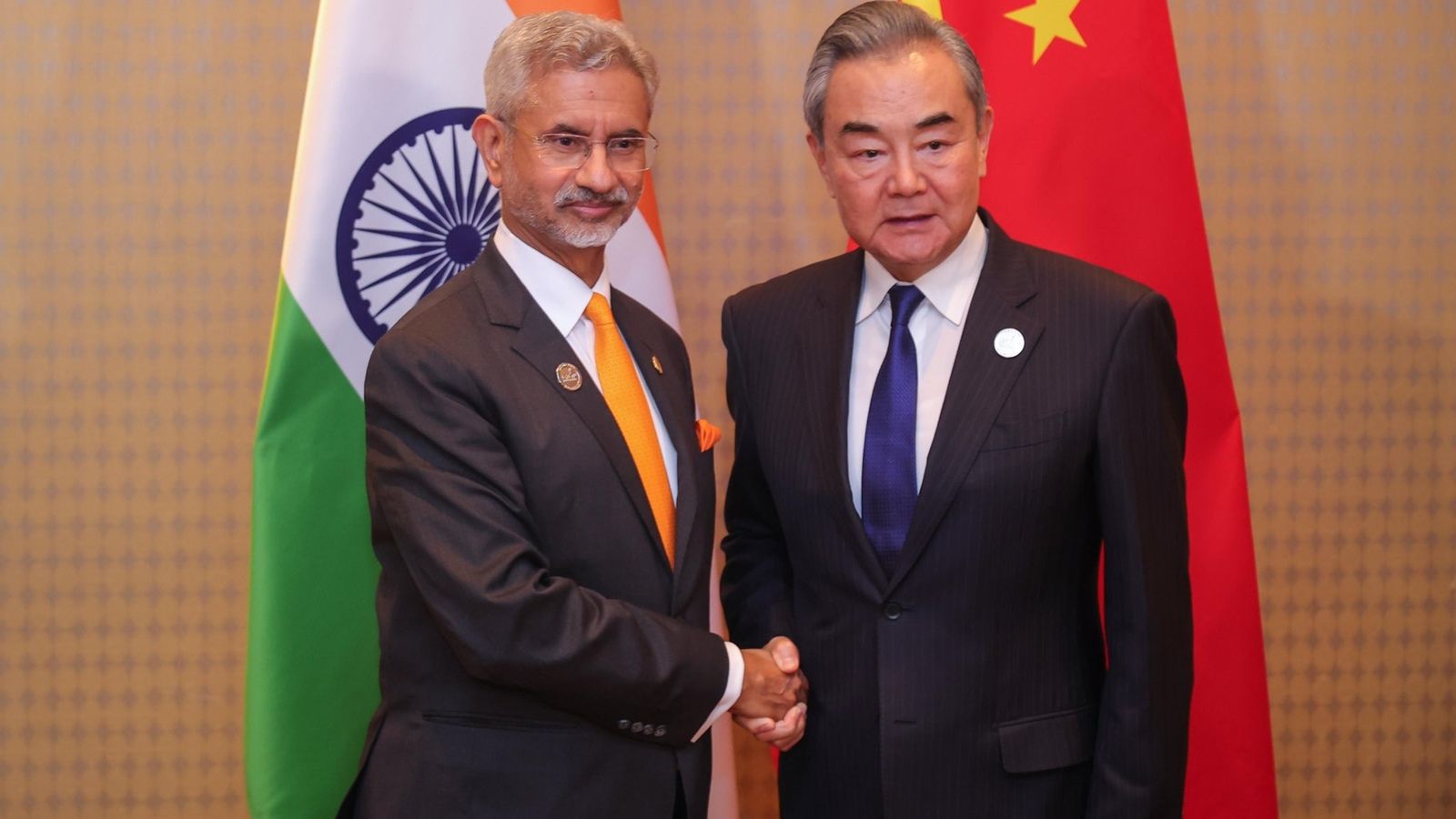 |
|
The recent meeting between Indian External Affairs Minister S. Jaishankar and his Chinese counterpart Wang Yi signifies a crucial step in the ongoing efforts to de-escalate tensions and improve bilateral relations between India and China. Following a significant disengagement agreement at two friction points along the Line of Actual Control (LAC) in October, the two ministers convened on the sidelines of the G20 Summit in Rio de Janeiro to discuss the 'next steps' in their complex relationship. This meeting, characterized by a cautiously optimistic tone from both sides, focused on practical measures to build trust and foster cooperation.
Central to the discussions was the resumption of the Kailash Mansarovar Yatra, a significant religious pilgrimage for Indian citizens. The temporary suspension of this pilgrimage due to border tensions underscored the sensitive nature of the relationship. The agreement to resume the Yatra represents a tangible step towards normalizing people-to-people contact, a crucial aspect of fostering goodwill and mutual understanding. Beyond the pilgrimage, the ministers also addressed other key areas for cooperation, including data sharing on trans-border rivers, the establishment of direct flights between India and China, and increased media exchanges. These initiatives aim to facilitate practical cooperation and enhance communication channels, reducing the potential for misinterpretations and misunderstandings.
The meeting also highlighted the importance of established diplomatic mechanisms in managing the bilateral relationship. The agreement to convene meetings of the Special Representatives and the Foreign Secretary-Vice Minister mechanism soon indicates a commitment to structured dialogue and problem-solving. This formalized approach underscores a desire to manage differences through established channels, rather than resorting to unilateral actions or escalatory rhetoric. Both sides emphasized their commitment to maintaining peace and tranquility along the LAC, acknowledging that the recent disengagement had contributed to a more stable environment. This shared recognition of the need for stability serves as a crucial foundation for building upon the progress made.
The discussions extended beyond bilateral issues to encompass the global political landscape. Both ministers recognized the significance of India-China relations in the broader context of world politics and acknowledged both areas of convergence and divergence in their perspectives. The commitment to a multipolar world, particularly a multipolar Asia, was emphasized by Jaishankar, highlighting India's independent foreign policy approach. This assertion of an independent stance underscores India's commitment to its national interests while seeking to foster cooperation wherever possible. Wang Yi's concurrence with this vision suggests a shared understanding of the need for a balanced global order, moving away from unilateral dominance.
The emphasis on stabilizing ties and managing differences reflects a pragmatic approach to resolving the complex challenges in the relationship. Both sides recognized the need to build upon the progress made regarding the disengagement at the LAC, moving towards de-escalation and de-induction of troops. The positive signals coming from both sides indicate a willingness to engage in constructive dialogue and find common ground. However, the path to a fully normalized relationship remains challenging, requiring continued dialogue, mutual trust, and a commitment to addressing the underlying concerns of both nations. The success of these initiatives will depend not only on the political will of the leadership but also on the effectiveness of the diplomatic mechanisms in place to ensure consistent progress and address emerging challenges.
The success of these initiatives will depend on the long-term commitment from both sides to maintaining open communication channels and addressing outstanding concerns. While the recent disengagement at the LAC represents a significant step forward, it's important to acknowledge that resolving all outstanding border issues will require sustained effort and a commitment to finding mutually acceptable solutions. The meetings between Special Representatives and the Foreign Secretary-Vice Minister mechanism will be crucial platforms to achieve this goal. Further, the symbolic gestures like the resumption of the Kailash Mansarovar Yatra, while having significant cultural and religious importance, will also play a vital role in building people-to-people connections and fostering a more positive atmosphere for continued dialogue and cooperation.
Source: Jaishankar and Wang discuss next steps: resumption of Mansarovar Yatra, direct flights
